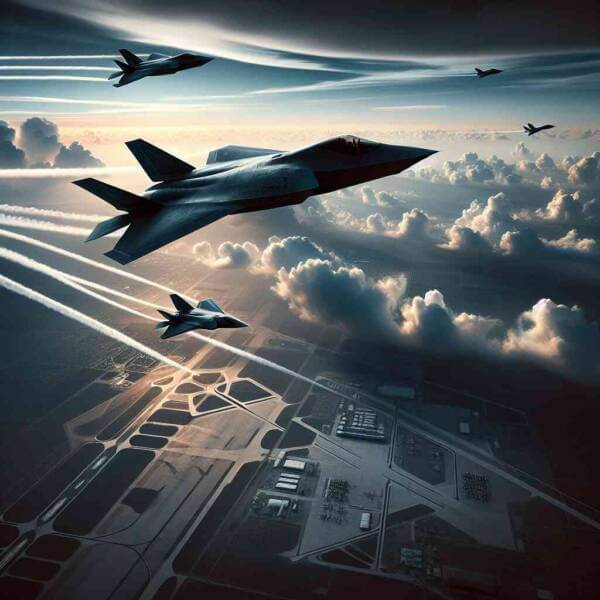
The use of aircraft in military operations provides strategic advantages.
Nations invest heavily in military aviation to protect national interests.
The Evolution of Military Aviation
Military aviation started during World War I, with aircraft initially used for observation.
Major milestones in military aviation history include:
- Development of air combat tactics
- World War II advancements
- Emergence of strategic bombers and nuclear deterrence
- Rise of unmanned aerial vehicles (UAVs)
Each era brought more powerful aircraft that pushed the limits.
Types of Military Aircraft
Understanding the types of military aircraft helps in appreciating the complexity of modern air forces.
Major aircraft classifications:
- Planes built for speed and agility
- Aircraft for long-range attacks
- Transport aircraft
- Reconnaissance and surveillance drones
Each type plays a key part in military operations, from striking enemy targets.
Importance of Air Superiority
Controlling the skies protects ground operations.
How controlling the air impacts battles:
- Protecting ground forces
- Cutting off enemy resources
- Surveillance and reconnaissance missions
- Boosting morale
Nations with strong military aviation capabilities can defend their interests more effectively.
Advancements Shaping the Future
Military aviation is at the forefront of technological innovation.
Recent innovations include:
- Low-visibility planes
- Missiles and aircraft traveling at speeds greater than Mach 5
- Artificial intelligence-driven missions
- Laser and electromagnetic systems
These advancements expand mission possibilities for air forces worldwide.
Challenges in Military Aviation
Despite technological superiority, military aviation faces complex problems.
Pressing issues in military aviation:
- Rising development and maintenance costs
- Short life cycles for cutting-edge aircraft
- Cybersecurity threats
- Questions about accountability and control
Addressing these challenges is essential for maintaining air power.
Where Military Aviation is Heading
Nations will continue investing in next-generation aircraft to maintain strategic advantages.
Expected advancements:
- Autonomous mission planning
- Space as the next battlefield
- Reducing environmental impacts of defense operations
- Collaborations across allied air forces
The next era of military aviation will revolutionize how wars are fought.
The Enduring Power of Military Air Forces
Its history, present achievements, and future possibilities showcase technological check here excellence.
As technology continues to evolve, the skies will remain a frontline of innovation where military aviation shapes the world order.
The future of military aviation is limitless — and it’s only just beginning.